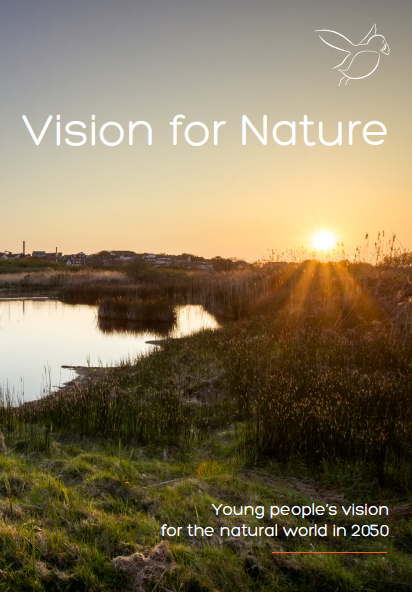The Vision for Nature report has been published by A Focus on Nature (the UK’s youth nature network).
The report sets out how young people would like the natural world to look by 2050 and how they think we should get there. A Focus on Nature has used focus groups, social media, online surveys and interviews to gather the views of nearly 200 young people.
Key aims of the report
There are two key aims of the report:
1. To encourage young people to think more politically about wildlife and its future in the UK.
2. To put the youth nature movement on the radar of politicians and decision makers in the UK.
Key messages of the report
The report has some key messages:
? A movement of UK young people care about the natural environment and wildlife and want to see action to protect it.
? We want to work with politicians, governments, business and NGOs to make our vision a reality
? We want to see a flourishing natural world by 2050
? New polling shows that 90% of young people think politicians protecting nature is important and that the environment is their top voting priority
? Sir David Attenborough has said this about the report: “None of us own the natural world. We only hold it in trust for the next generation. It is a cause for hope that as
this report shows, so many of those who will inherit it feel the same”
Key recommendations of the report
The report contains seven key recommendations. These are:
1. We would like the UK Government to bring out a 250 year plan for nature that achieves our vision by 2050, then sets out how nature will be maintained for generations to come.
2. All tax breaks and subsidies for fossil fuels in the UK to be redirected to renewable energy.
3. All agricultural payments to incentivise management of farmland that benefits wildlife
4. 25% of UK land and marine environment to be managed for nature to the highest standards under robust legislation.
5. A programme of rewilding and reintroduction of absent native species, including keystone species such as beaver and lynx, will be implemented in suitable key locations around the UK.
6. Throughout primary school 20% of lesson time will be spent outdoors in quality green space, with half of this spent learning about and interacting with the natural world.
Natural History will become a key part of the curriculum in secondary education.
7. A joint government,business and third sector programme to create ten city national parks across the UK and to develop urban nature reserves and wildlife gardens in the
most deprived communities in the UK.

